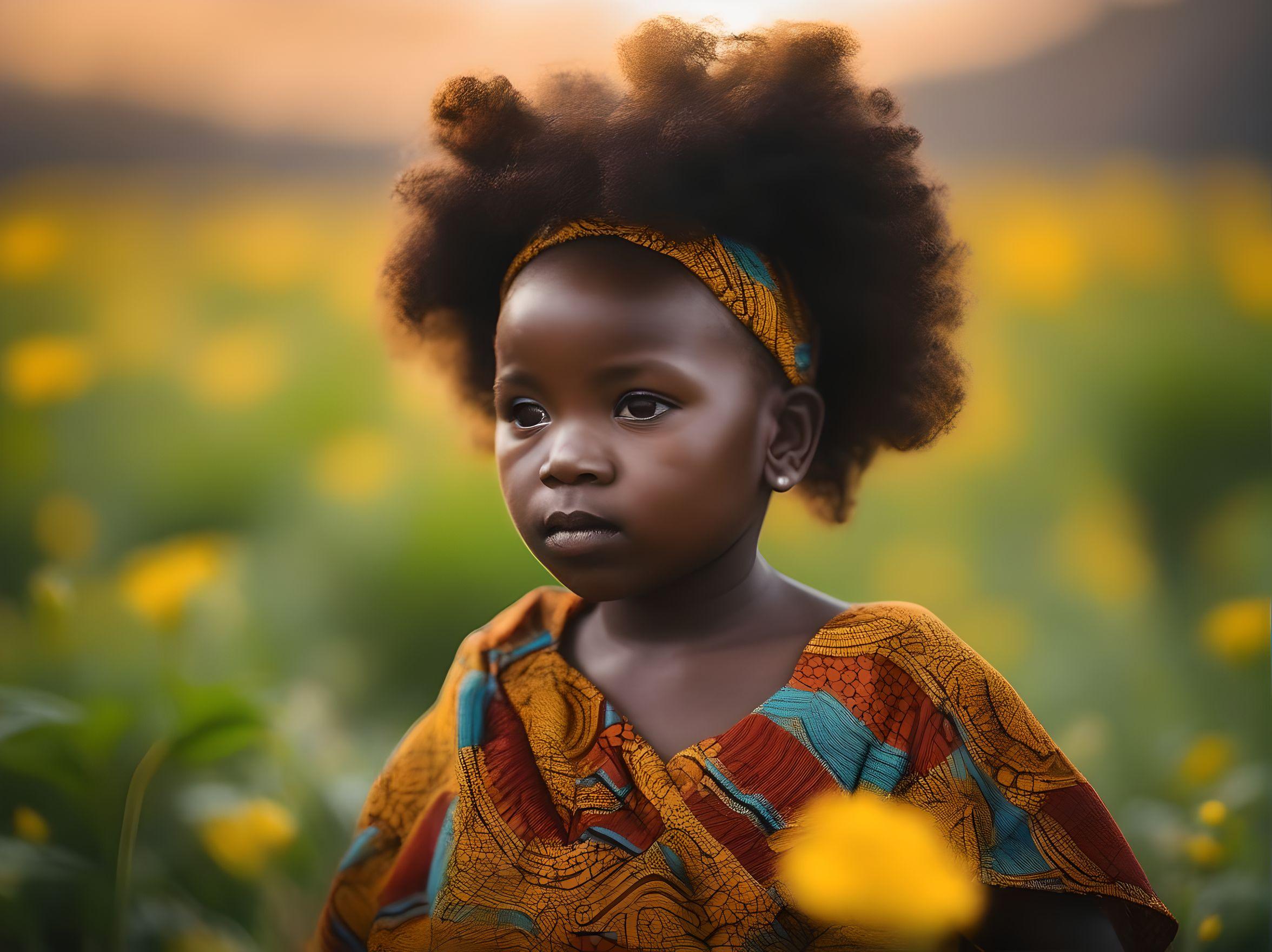The Global Black Community and the Fertility Crisis: A Deeper Dive into Population Decline
In recent years, a worrying trend has emerged globally: plummeting populations and fertility rates, sparking conversations and concerns across nations. This phenomenon isn’t isolated to specific regions but is a widespread issue affecting various communities, including the Global Black community. The narrative around fertility and population decline is complex, intertwining societal pressures, health disparities, and environmental factors that collectively contribute to this crisis. This blog aims to explore these dimensions, particularly focusing on the Global Black community, to shed light on the multifaceted nature of the fertility crisis.
In facing the multifaceted challenges of the fertility crisis within the Global Black community, the mission of AfriKin is more crucial than ever. Recognizing the profound impact of systemic health disparities, environmental toxins, and the need for comprehensive healthcare access, AfriKin is dedicated to pioneering solutions that cater specifically to our AfriKin globally. Our commitment is to not only raise awareness of these pressing issues but to actively engage in creating and supporting initiatives that directly address the root causes of infertility and population decline.
Shocking Rates of Population Decline and Low Fertility Rates
Globally, countries are facing a fertility crisis, with birth rates falling below replacement levels. This decline is not merely a matter of personal choice but is influenced by a confluence of factors including economic pressures, lifestyle changes, and health issues. In the Global Black community, this issue is compounded by systemic inequalities that affect access to healthcare, nutrition, and overall well-being, which are critical to fertility.
Lower Sperm Levels in Men
Traditionally, discussions around fertility have predominantly focused on women. However, recent studies have highlighted a significant decline in sperm quality and quantity in men, marking a shift in the fertility discourse. This decline has been observed worldwide and is linked to lifestyle factors, environmental toxins, and health issues such as obesity, which are prevalent in many communities, including the Global Black population.
The Role of Environmental Toxins on Fertility
Environmental toxins play a substantial role in the fertility crisis. Exposure to pollutants, chemicals, and endocrine-disrupting compounds is increasingly common in our modern world. These toxins can affect both men and women by disrupting hormonal balance, reducing sperm quality, and contributing to conditions such as polycystic ovary syndrome (PCOS) and endometriosis, which can impair fertility.
Infertility in Women and Increased Rates of Miscarriages
Women today face a myriad of challenges when it comes to fertility. Factors such as age, lifestyle, and environmental exposures contribute to a higher incidence of infertility and miscarriages. In the Global Black community, issues like access to quality healthcare and the prevalence of certain health conditions further exacerbate these challenges.
The One Percent Effect
The “one percent effect” refers to the subtle yet significant impact of modern lifestyles on fertility. Small exposures to toxins, marginal nutritional deficiencies, and minor disruptions in sleep and stress levels can cumulatively have a profound impact on fertility. This effect underscores the need for a holistic approach to addressing the fertility crisis, emphasizing the importance of overall health and well-being.
Reproductive Health as a Sign of Overall Health
Reproductive health is often a reflection of general health status. Conditions that affect overall health, such as diabetes, hypertension, and obesity, can also impair fertility. This connection highlights the importance of comprehensive health strategies that address both reproductive and general health concerns.
The Role of IVF
In vitro fertilization (IVF) has become a critical tool in addressing infertility. While IVF can offer hope to many couples, it also underscores the broader issues of accessibility and affordability, particularly in the Global Black community where disparities in healthcare access can limit the availability of such treatments.
The Three Main Root Causes of Infertility
The root causes of infertility can be broadly categorized into three areas: environmental/lifestyle factors, biological/genetic factors, and systemic health issues. Addressing these root causes requires a multidisciplinary approach that includes healthcare providers, policymakers, and individuals.
Concluding Thoughts on Fertility
The fertility crisis is a complex issue that demands a comprehensive understanding and approach. For the Global Black community, addressing this crisis means not only tackling the direct factors affecting fertility but also confronting the broader systemic inequalities that contribute to health disparities. Advocacy, education, and policy change are essential to ensure that all individuals have the opportunity to achieve their reproductive goals.
AfriKin’s approach is holistic, embracing the interconnectedness of health, environment, and societal well-being. By fostering partnerships with healthcare providers, researchers, and community organizations, we aim to develop programs that improve access to quality healthcare, promote healthy lifestyles, and reduce exposure to environmental toxins. Education plays a pivotal role in our mission, empowering individuals and communities with the knowledge to make informed decisions about their reproductive health and overall well-being.
We advocate for policy changes that ensure equitable healthcare access and environmental justice, understanding that systemic change is essential to making lasting impacts. AfriKin also supports the advancement of reproductive technologies and treatments, striving to make these solutions more accessible and affordable to the Global Black community.
Our call to action is clear: join us in this vital mission to address the fertility crisis and support the health and prosperity of our AfriKin globally. Through collaboration, innovation, and dedication, we can overcome these challenges and build a healthier, more equitable future for all. AfriKin is not just seeking solutions; we are actively creating them, and we invite you to be part of this transformative journey. Together, we can make a difference in the lives of many and pave the way for generations to come.
In conclusion, the fertility crisis is a multifaceted issue that reflects broader health, environmental, and societal challenges. By focusing on comprehensive health and well-being, advocating for equitable healthcare access, and addressing environmental toxins, we can begin to mitigate the factors contributing to declining fertility rates. It’s a journey that requires the collective effort of communities, healthcare professionals, and policymakers to ensure a healthier future for the next generations.
____________________________________________
AfriKin Ethos: Our Why
At the heart of AfriKin lies a profound purpose: to celebrate and elevate our diverse cultural heritage while fostering a global community rooted in understanding and unity.
I founded AfriKin not just as an organization but as a movement – a response to the deep-seated need for a platform where the rich tapestry of our experiences and expressions could be showcased and appreciated.
I recognize that the emotional trauma and challenges faced by our community are not ours alone. They cross ethnic and cultural boundaries, resonating deeply with people around the world. AfriKin is our answer to these shared struggles, a beacon of hope and solidarity. It’s a safe space where we can collectively heal, learn, and grow.
Our “Why” is simple yet profound: To bridge the divides that have long separated us. In a world where division and segregation are rampant, AfriKin stands as a testament to the power of unity.
We bring people together from all walks of life, offering a glimpse into the beauty and resilience of our culture. Through events, products, and various creative expressions, we not only celebrate our heritage but also provide a platform for dialogue, education, and mutual respect.
AfriKin is not just about what we offer – it’s about the emotional connections we forge, the stories we share, and the inclusive community we build. Our journey unites people in a shared experience that transcends borders and backgrounds. It’s a celebration of humanity in its most vibrant form.
Our mission extends beyond mere cultural showcase; it’s a call to action for empathy, understanding, and change. We stand as a reminder that our struggles and joys are interconnected, and in acknowledging this, we find strength.
Join us in this journey of discovery and unity. Be a part of AfriKin, where every voice is heard, every story is valued, and every individual is an integral thread in the fabric of our shared human experience. This is why AfriKin exists – to connect, to empower, to inspire.
Thank you,
Alfonso Brooks
Founder

